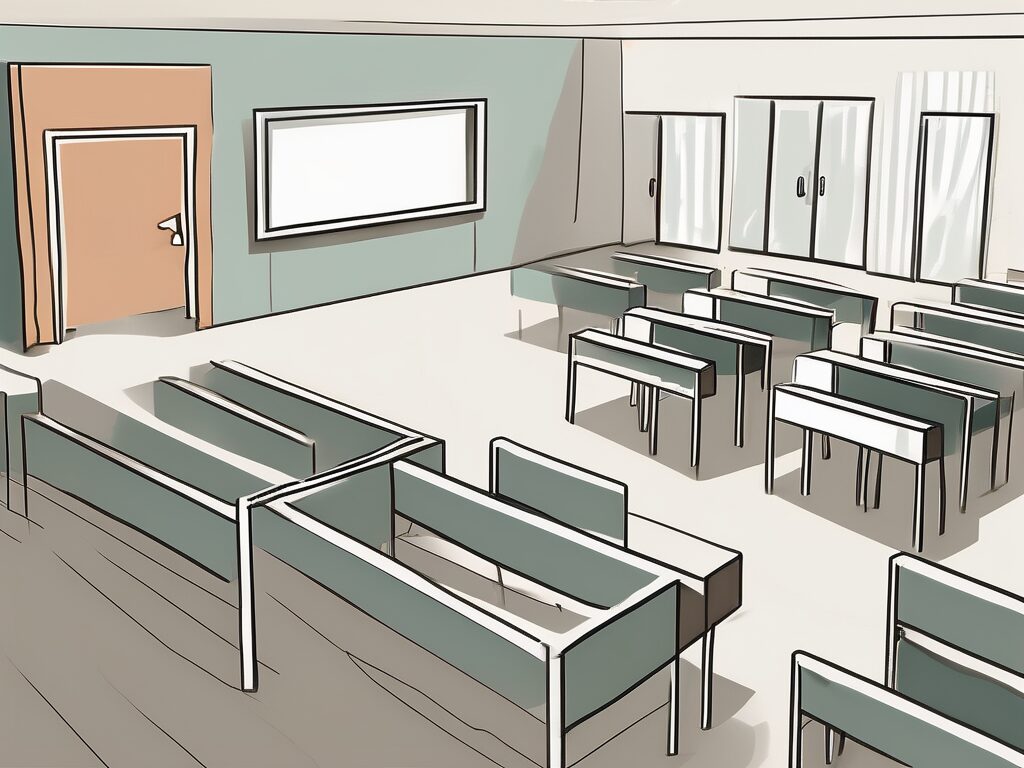Dubai, the jewel of the United Arab Emirates, is a city that is synonymous with luxury, innovation, and rapid development. However, beneath the glitz and glamour, there are challenges that persist in the education sector, particularly for teachers with a Master’s degree in Education. In this exploration, we will delve into six key factors that create barriers in the education landscape of Dubai for these highly qualified professionals.
1. Cultural Differences
The first barrier that teachers with a MA in Education face in Dubai is the cultural difference. The UAE is a melting pot of cultures, with residents from all corners of the globe. This diversity, while enriching, can also pose challenges in the classroom.
Teachers from Western countries, for instance, may find the teaching methods and classroom dynamics in Dubai vastly different from what they are accustomed to. The emphasis on rote learning, the hierarchical teacher-student relationship, and the gender segregation in some schools can be quite a culture shock.
Moreover, the cultural nuances and sensitivities can be difficult to navigate for outsiders. For example, discussing certain topics may be considered inappropriate or offensive. Therefore, teachers must be culturally aware and sensitive to maintain a respectful and inclusive classroom environment.
2. Language Barriers
Although English is widely spoken in Dubai, Arabic is the official language. This can pose a challenge for teachers who are not fluent in Arabic. While most international schools in Dubai use English as the medium of instruction, teachers may still encounter difficulties in communicating with parents or school staff who prefer Arabic.
Furthermore, teachers may find it challenging to understand and respond to students’ needs adequately if the students are not proficient in English. This language barrier can hinder the teacher’s ability to deliver effective instruction and build strong relationships with their students.
3. High Expectations and Pressure
Dubai’s education sector is highly competitive. Parents have high expectations for their children’s education, and this pressure trickles down to the teachers. Teachers with a MA in Education, in particular, are expected to deliver top-notch education and ensure their students’ academic success.
This high-pressure environment can lead to stress and burnout, particularly for teachers who are new to the city or the profession. The pressure to perform can also stifle creativity and innovation in teaching, as teachers may feel compelled to stick to tried-and-true methods rather than experimenting with new teaching strategies.
4. Regulatory Challenges
The education sector in Dubai is heavily regulated by the Knowledge and Human Development Authority (KHDA). While these regulations are intended to ensure the quality of education, they can also create barriers for teachers.
For instance, teachers must meet certain qualifications and experience requirements to be licensed by the KHDA. The licensing process can be lengthy and complex, posing a challenge for teachers who are eager to start their careers in Dubai.
Moreover, the KHDA conducts regular school inspections and assessments. While these inspections help maintain high educational standards, they can also create additional pressure and workload for teachers.
5. High Cost of Living
Dubai is known for its high cost of living. While teachers in Dubai often earn a decent salary, the high living expenses can eat into their income significantly. The cost of housing, utilities, food, and transportation can be quite steep, particularly in the more desirable areas of the city.
Moreover, the high cost of living can make it difficult for teachers to save money or enjoy a comfortable lifestyle. This financial strain can affect their job satisfaction and overall well-being.
6. Professional Development Opportunities
While Dubai offers numerous professional development opportunities for teachers, accessing these opportunities can be challenging. Many of these programs are expensive, and not all schools are willing or able to sponsor their teachers for these opportunities.
Moreover, the high workload and demands of the job can leave teachers with little time or energy for professional development. This lack of professional growth opportunities can lead to stagnation and dissatisfaction in the profession.
In conclusion, while Dubai offers exciting opportunities for teachers with a MA in Education, it also presents unique challenges. Understanding these barriers can help teachers prepare and strategize to overcome them, ensuring a rewarding and fulfilling career in this vibrant city.
Take the Leap with The IQTS at UWE
Recognizing the barriers faced by teachers with a MA in Education in Dubai, The IQTS at UWE presents the International Qualified Teacher Status (iQTS) programme, a beacon of hope for educators aiming to enhance their qualifications and overcome professional hurdles. Embrace the opportunity to elevate your career, connect with a global community of educators, and gain a comprehensive understanding of international curricula. With the iQTS programme, not only can you expect a significant increase in interview callbacks and promotion rates, but also a substantial salary boost. Don’t let the challenges hold you back. Make Your Next Step towards a brighter future in international education with the flexibility to balance your professional development alongside your commitments.

